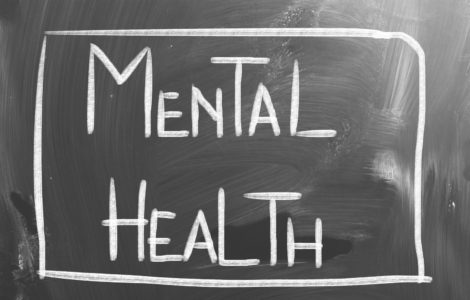Can you get life insurance if you have depression?
FREE Life Insurance Comparison
Secured with SHA-256 Encryption
Compare quotes from the top life insurance companies and save!
- Depression can happen to anyone, and it doesn’t necessarily mean that it is impossible to get covered by life insurance
- Depression can happen for several reasons, but it is easily treatable, and people can recover from it
- Life insurance companies don’t automatically turn individuals who have depression away
- If an individual who has depression is offered a policy, even if the premium is rated, they should take the policy, as they could get better and have the premium reduced
Depression is a medical condition where a person feels sad, defeated, inept and feels unable to do anything about it. The individual can feel helpless, overwhelmed and totally out of control as far as feeling differently.
The person can have a loss of appetite, energy, no purpose, and difficulty in thinking and of making decisions.
In severe cases, the depressed individual can have feelings and thoughts of suicide. The clinical diagnosis of depression can be diagnosed if a person has these symptoms for two weeks or more.
Learn more about depression below and make sure to use our free comparison tool above!
Causes of Depression

Depression can be caused and influenced by:
- A person’s biochemistry
- The personality of an individual
- Factors in the environment
- The person’s personality
–Treatment of Depression
Treatment for depression will depend on the severity of the condition and the length of time it has manifested. Medication, psychotherapy, shock treatment, group therapy and other treatments have been successful.
In many cases, treatment will be ongoing and in-depth. 80 to 90 percent of all people who suffer from depression can be helped with treatment.
Depression and Life Insurance
Even though depression is a psychological disease, it does have an effect on the health and the ability of the afflicted individual to get life insurance.
In severe cases, suicide is a definite possibility due to the victim’s low state of self-worth. But depression can affect a person’s health in physical ways too.
Stress is one of the most damaging factors as far as our health, and a state of constant worry and self-depreciation can certainly cause lots of stress.
A weakened immune system, higher blood pressure, and cardiovascular problems can occur.
Ulcers, indigestion and digestive issues can also be a problem. Then there is the possibility of a depressed person getting into situations that are dangerous when driving, walking as a pedestrian and just getting around at home.
Working With The Underwriter in the Home Office

The more information the underwriter has who is assigned to the file of an applicant for life insurance who has a history of anxiety and depression the better.
Underwriters can only go on what they have available, and most of the time the information that is available to them comes from doctors reports, called an attending physician’s statement, or an APS.
That kind of information can be pretty sterile and matter of fact, and sometimes it helps to personalize the situation a bit.
Circumstances are important, and if the depression is chronic and occurs frequently, there is more of a chance of a turndown of coverage or a rating of the premium.
The more time that has elapsed since the last episode or situation of being depressed, the better. If a person was depressed just last week and was taking medication during that time, the rating may be more severe, or the case might be declined.
However, if it has been over six months since an episode, there is more probability of a more favorable view.
Strategies For Success
A lot depends on the prognosis by the applicant’s doctor and what ongoing treatment and activities regarding what kind of treatment an underwriter give the depressed candidate.
The medication and its results are important, but so are the results from other forms of treatment, such as psychoanalysis, group therapy, and other forms of treatment.
It is always helpful to have the doctor write a letter to the underwriter and briefly sum up some of the latest treatment procedures and the results.
This alone can tell more about the current situation, and it will give the underwriter a more current perspective.
Outcomes

The results of the underwriting process can be very favorable if, for example, the depression was situational and it occurred quite some time ago.
If the person does not have to take medication and they are leading a normal life, they may even get a preferred rate.
If, however, there are ongoing circumstances and the individual has had more frequent episodes where symptoms seem to crop up more often, the person is taking medication, and they are being treated with other methods as well, the outcome will depend on severity and frequency of the condition.
The underwriting results can range from a mild rating to a decline, depending upon the severity and longevity of the condition and its manifestation.
This can be difficult to deal with, but the key is not to give up.
Wait a few months, and if treatment has been reduced and the individual is not being affected as much, feel free to reapply, as there are no limits on how many times you can try to get a good rating.
Why Any Person Who Receives a Life Insurance Premium Rating Should Go Ahead and Take It
If an individual has their life insurance premiums rated because of a medical or other underwriting condition, they should go ahead and accept it.
The rating is not necessarily locked in stone, and it can change. Once a policy is rated, the rating is locked into the point that the life insurance company cannot raise it.
However, if the applicant decides not to take the rating, one of four things can happen:
- The premium could go up later, at which time they would pay an even higher price for coverage
- The applicant could be declined
- The rating could be reduced or removed if the applicant improves healthwise
- The applicant could die
In any event, the applicant for the life insurance is better off to go ahead and take the insurance with the rated premiums because the decision puts him or her squarely in the driver’s seat.
No matter what the future holds, the fact that the applicant with depression has been able to get coverage is the important event. The situation then becomes workable as time moves on and the applicant’s situation improves or doesn’t improve.
In Conclusion

Depression has varying degrees of severity, and a person who is afflicted with the condition can get better with proper help and treatment.
The effect of the treatment and how a patient progresses will determine if life insurance can be offered ad at what price.
If an applicant who has depression is offered coverage, and even if the premium is rated higher, it is a right decision in most cases to go ahead and take the offer, as the applicant’s condition could improve.
Don’t miss out on our free quote tool below! Just enter your zip code and start comparing rates now!
Start Saving on Life Insurance!
Enter your zip code below to compare rates from the top companies in your area
Secured with SHA-256 Encryption



